10 outstanding teachers in a thousand years of Vietnamese history
Chu Van An, Than Nhan Trung, Luong Dac Bang, Nguyen Binh Khiem... are typical teachers in the thousand-year feudal history of our country.
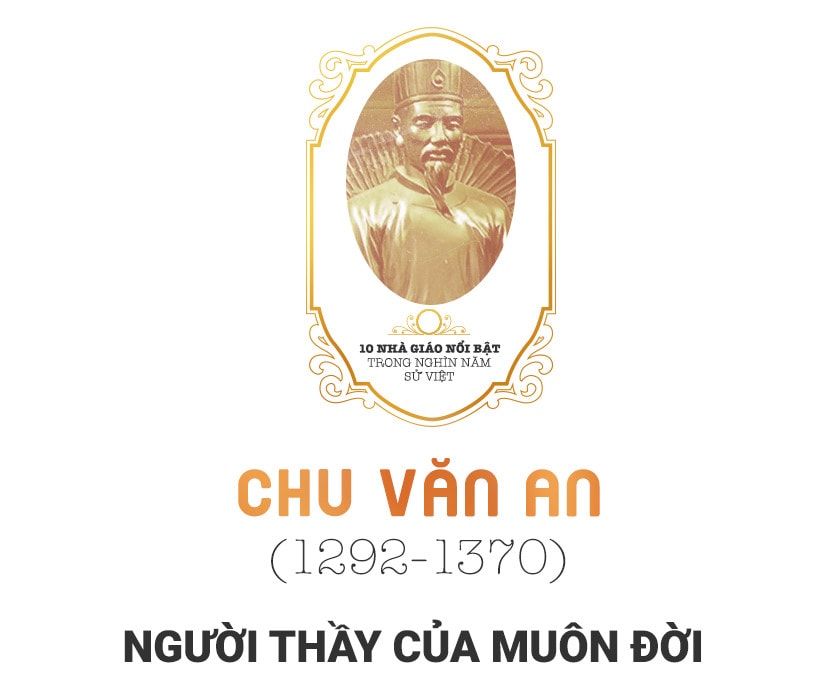 |
| Chu Van An (1292-1370) is the "eternal teacher of Vietnamese education". He was from Thanh Dam district (present-day Hanoi). Despite his high academic achievement, Chu Van An refused to become an official and returned home to open a school. For him, "education is the top national policy" as he replied to King Tran Minh Tong: "I have read books and have never seen a country that does not value education and can progress. I ask Your Majesty to allow me to return home to open a school and contribute to the education of the country". When King Tran Du Tong was fond of playing, neglected state affairs, and submitted petitions with no results, he hung his clothes and hat at Huyen Mon gate to return home to live in seclusion. Evaluating Chu Van An, Tu Do Tran Nguyen Dan once commented: "Thanks to him, the sea of learning has turned its waves and customs have returned to purity". |
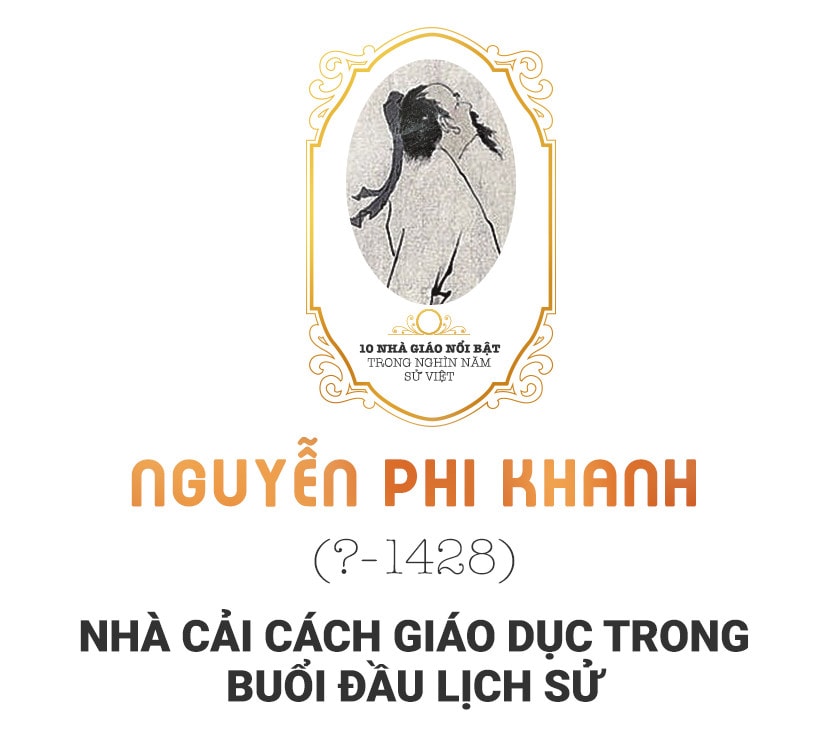 |
| Nguyen Phi Khanh (?-1428) was from Chi Linh district, Hai Duong province today. Born as a poor student, thanks to his good studies, he became a great mandarin of the Tran dynasty. Nguyen Phi Khanh is considered by later generations as a great educational reformer of the Tran and Ho dynasties. After the Ho dynasty was defeated by the Ming invaders in 1407, he was captured and taken to China. His son, Nguyen Trai, followed his father to Nam Quan pass. Nguyen Phi Khanh told Nguyen Trai: "You are an educated and talented person, so you should return to find a way to avenge your country and avenge your father. That is filial piety. Crying and crying is not filial piety." From his father's words, Nguyen Trai returned to Thanh Hoa to help Le Loi raise the flag of uprising, drive out the invading Ming army, avenge his family and repay his debt to the country. |
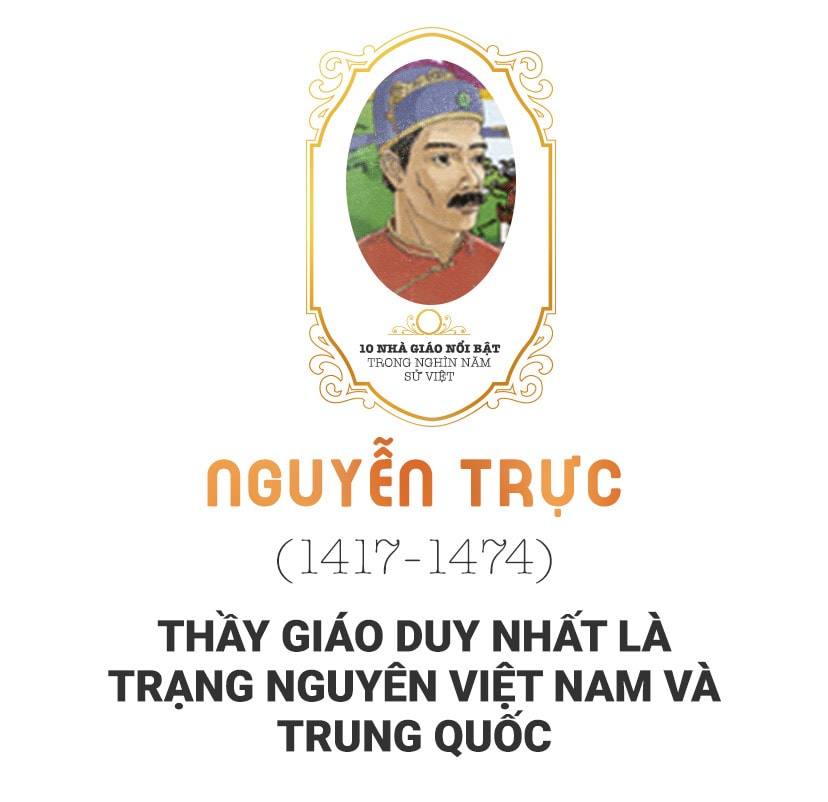 |
| Nguyen Truc (1417-1474) passed the imperial examination in 1442 under King Le Thai Tong. He became the first imperial examination winner of the Later Le Dynasty, the first person to have a stele erected at the Temple of Literature - Quoc Tu Giam. There are documents that later, when he was an envoy to China, he took part in the Ming Dynasty examination and passed the imperial examination. Under the Le Dynasty, he held the position of principal of the Quoc Tu Giam. Whether he was an official under King Le Nhan Tong or King Le Thanh Tong, Nguyen Truc was always a great mandarin loved by the court. |
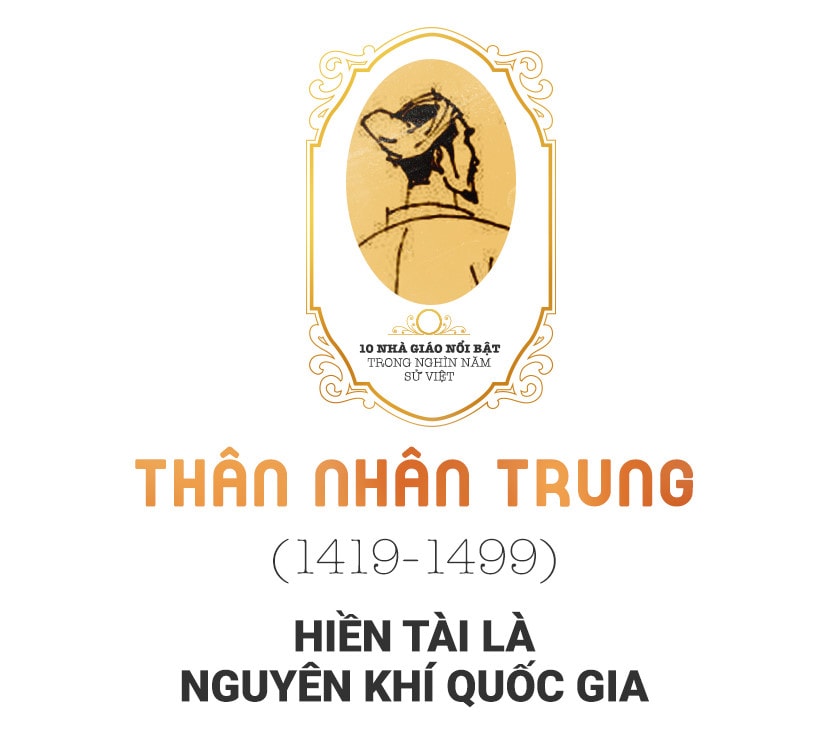 |
| Than Nhan Trung (1419-1499) was a Tay ethnic, from Viet Yen district, Bac Giang province. His family had a tradition of mandarin examinations, with many generations passing the doctoral exams. After passing the imperial examinations in 1469, Than Nhan Trung became an official under King Le Thanh Tong, holding many different positions, including the time he was appointed as the rector of the Imperial Academy, and was assigned to compose the epitaph for the first doctoral stele in the year of Nham Tuat (1442). When writing about the purpose of the Confucian examinations, Than Nhan Trung highlighted the importance of educating talented people for the prosperity of the country: "Talented people are the vital energy of the nation, when the vital energy is strong, the country is strong and prosperous, when the vital energy is weak, the country is weak and lowly. Therefore, wise and holy kings have never failed to consider educating talented people, selecting scholars, and cultivating the vital energy of the nation as necessary tasks...". |
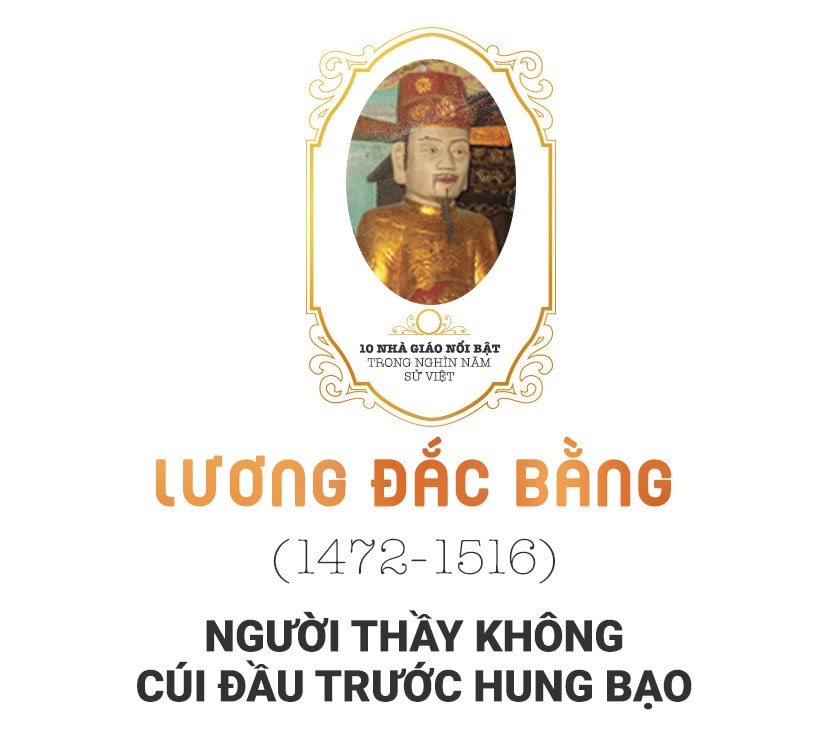 |
| The life of doctor and teacher Luong Dac Bang is associated with anecdotes about a man of integrity, profound knowledge, proficient in astrology, and who had the merit of teaching Trang Trinh Nguyen Binh Khiem. In his "Tri Binh Thap Sach", the first-ranked scholar Luong Dac Bang affirmed: Prohibiting bribery to eliminate corruption is one of the greatest principles of governing the country. Under the brutal Le Uy Muc, he openly issued a proclamation of protest. |
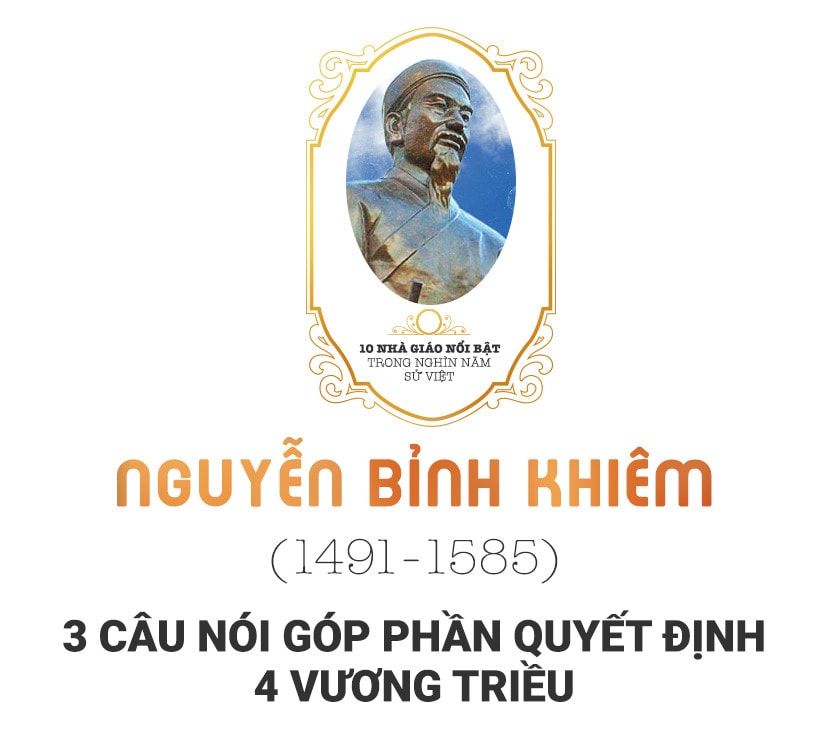 |
| When Lord Nguyen Hoang sent someone to ask for advice, Nguyen Binh Khiem said: “Hoanh Son nhat dai, van dai dung than” - a range of Hoanh Son can shelter people for all generations. Trang Trinh's words helped Nguyen Hoang start a dynasty that lasted for centuries, that is, the Nguyen family in Dang Trong. When Lord Trinh wanted to dethrone the Le family, Nguyen Binh Khiem advised them not to but to try their best to support the king so that the people could avoid war and the Trinh family's foundation could be stable, with the saying: “Keeping the temple to worship Buddha will give you oanh fruit”. When the Mac family weakened, he advised them to retreat to Cao Bang, thanks to which the foundation could last for another 60 years. |
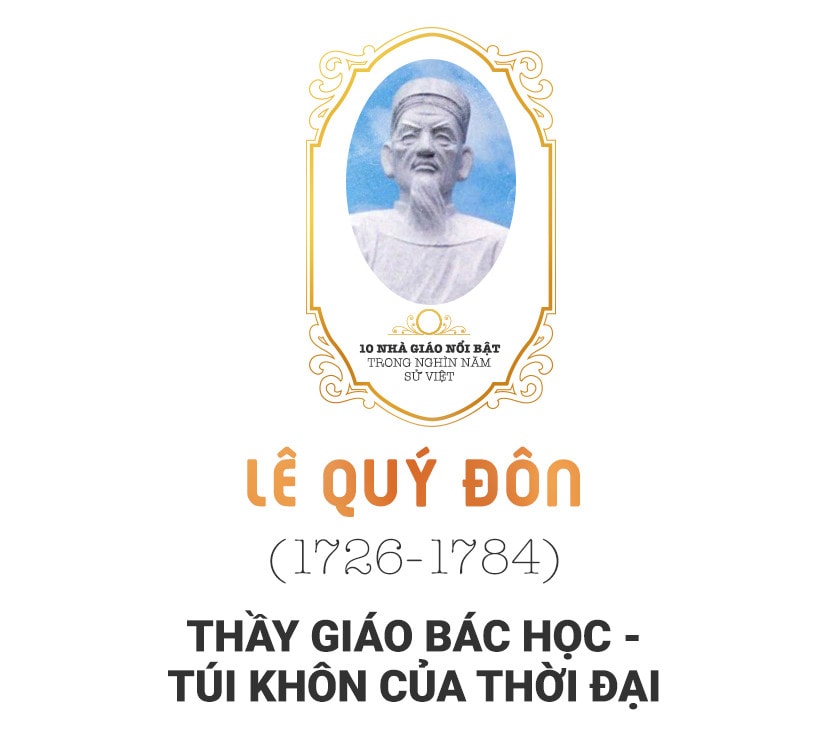 |
| Le Quy Don (1726-1784) once opened a private school to teach. In his book The Book of Changes, he advocated learning for practice, learning must become a means to help people have the ability to do good for society. He asked the question: "The mouth reads, the stomach thinks, knowledge and action are different, career and reputation are not significant, studying a lot is useless". Discussing learning methods, Le Quy Don gave some specific advice for students and scholars to practice good habits while studying. He advised: "No matter how ignorant, you should respect paper and be stingy with words; no matter how stingy, you should find books and notebooks". He believed that knowing how to study cannot justify lack of time. Along with Phan Huy Chu, he was honored as a scholar of our country in the feudal period, "the wisdom of the era". |
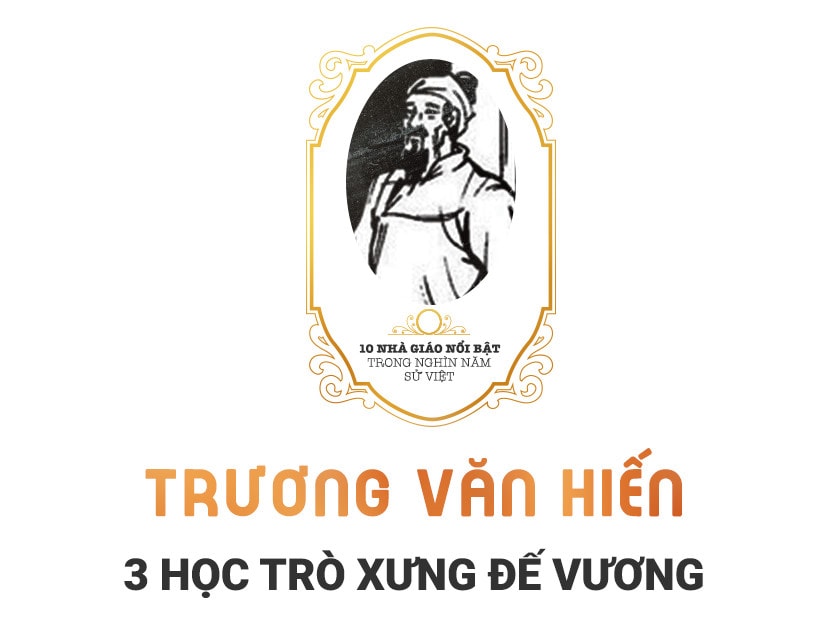 |
| With two students claiming to be emperors and one claiming to be king, martial arts master Truong Van Hien is a "unique" case in Vietnam. Of the three students of Mr. Truong Van Hien, the most famous is King Quang Trung - Nguyen Hue. Mr. Truong Van Hien taught both literature and martial arts. For him, literature and martial arts must be equal. When accepting students, this teacher always selected students according to two criteria: aptitude and virtue. The aptitude must be intelligent, studious, and virtue must be persistent and benevolent. Students from other districts and provinces came to study. In literature, he specialized in military books and maps, and in martial arts, he had all eighteen levels. Mr. Truong Van Hien once told his students: "Having martial arts without literature is often violent. Having literature without martial arts is often weak. Literature and martial arts must depend on each other to maintain human morality." Most of his students later became generals of the Tay Son dynasty. |
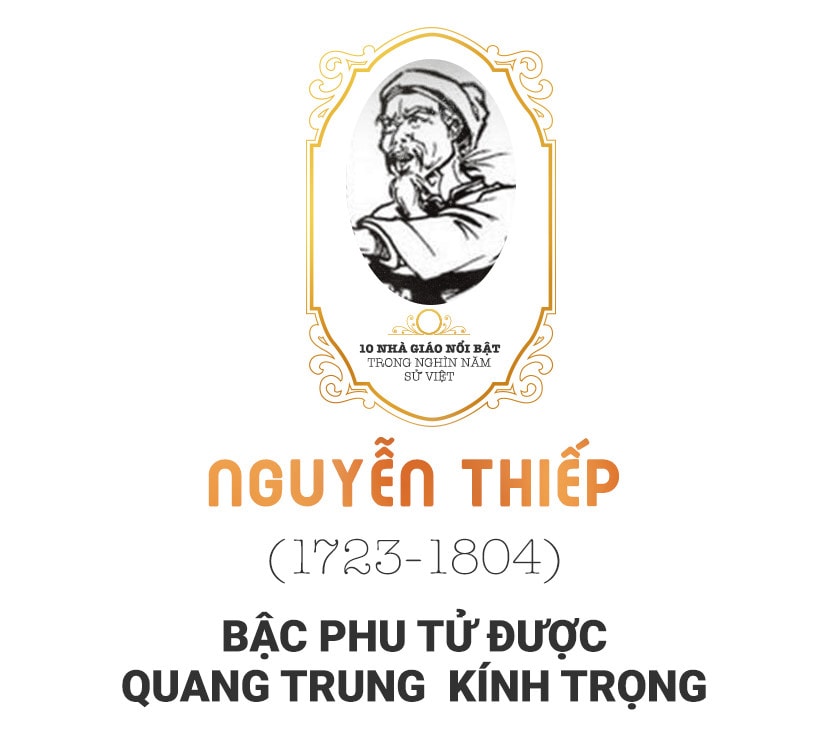 |
| La Son Phu Tu Nguyen Thiep (1723-1804) was a famous scholar and teacher in the late 18th century. He was from Duc Tho, Ha Tinh, and was revered as a "phu tu" by his students. In 1791, King Quang Trung established the Sung Chinh Institute near where Nguyen Thiep lived in seclusion, inviting him to be the director with the task of translating Chinese books into Nom, implementing educational reform measures, and training talented people. When discussing educational views, he believed that we should takeElementaryas a foundation, from which to expand teachingFour Books, Five Classics, the history books. "Good education leads to many good people, and with many good people, the dynasty is stable and the world is well governed." |
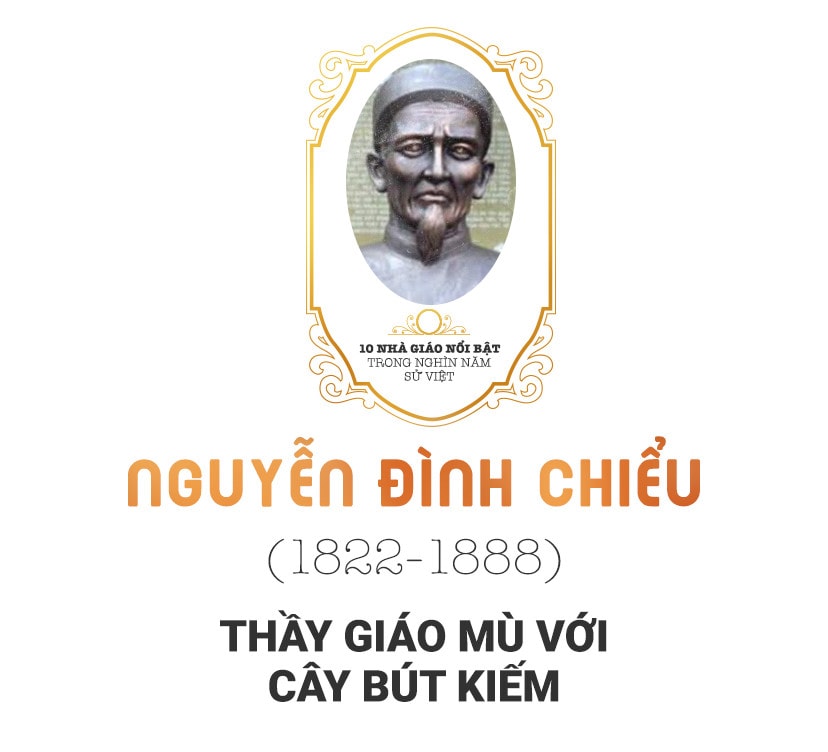 |
| Nguyen Dinh Chieu was a famous patriotic teacher in the 19th century. When our country was invaded by French colonialists, Nguyen Dinh Chieu taught and fought tirelessly with his sharp pen. For him, the pen was also a weapon of war: "Can carry many boats without sinking / Can stab many wicked men without turning evil". |

